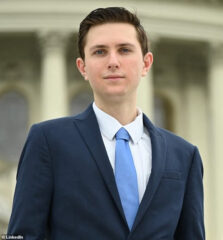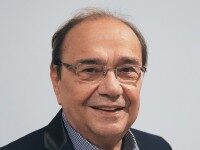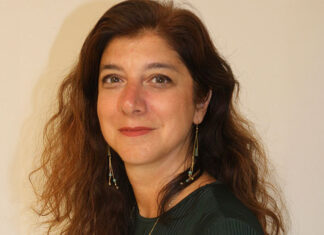By Aram Arkun
Mirror-Spectator Staff
BOSTON — Historic Faneuil Hall in the heart of Boston was the site of an evening of lectures and performances called “Honoring America’s Call to Action: Then and Now” on October 22. This program constituted the sixth annual K. George and Carolann S. Najarian, MD, Lecture on Human Rights, presented by the Armenian Heritage Foundation, and on the occasion of the centennial of the Armenian Genocide, it returned to the relationship of the Armenian Genocide and the US. It was also a tribute to the New Englanders who worked for intervention and aid for the Armenians.
Najarian, a philanthropist and author, initially welcomed the guests, introduced the speakers, and later closed the formal part of the program, which continued with a reception at the Millennium Bostonian Hotel and an exhibition of Near East Relief posters called “They Shall Not Perish: The Story of Near East Relief.” Najarian, referring to the dramatic portion of the program, said at the end, “We took a little bit of a risk and did something different this time.”
Dr. Peter Balakian, Donald M. and Constance H. Rebar Professor at Colgate University, provided the historical perspective of the “Call to Action” from 1894 to 1919. Balakian, the author of seven books of poems and four books of prose, is the author of The Burning Tigris: The Armenian Genocide and America’s Response, which describes how America became involved in the Armenian cause. One copy of this book was placed on every seat in the hall that evening, courtesy of the National Association for Armenian Studies and Research, and the Najarian Lecture Planning Committee.
Balakian started by exclaiming that the energy in the Boston-Armenian community was exciting, with all its organizations and the creation of the Armenian Heritage Park, and that this was part of an extraordinary flowering and renaissance of Armenian culture over the past few decades in Boston and in the US as a whole. The movement forward on recognition of the Armenian Genocide has been important, he said, but there is so much more to happen. He said that by the centennial, “the coverage is making it clear that massive human rights crimes done with impunity fester and explode — they don’t go away.”







